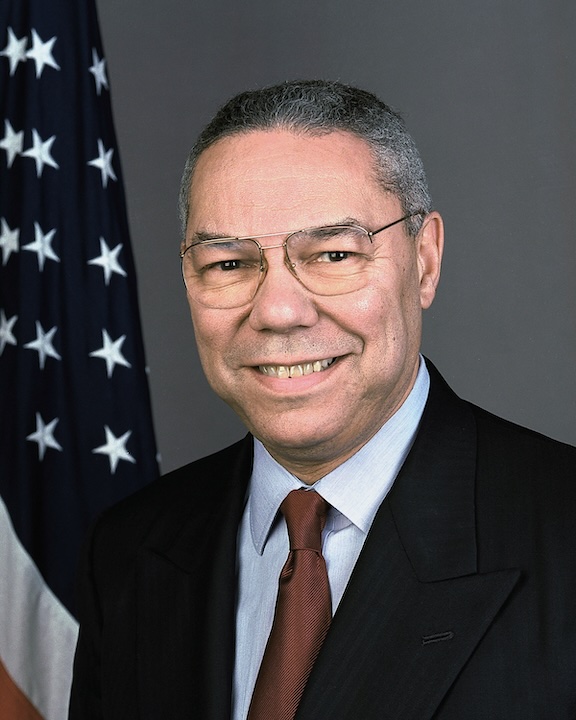2001 Powell SEcretary of State

Colin Powell was appointed to be Secretary of State by President George Bush on September 11, 2001
Colin Powell was appointed as the United States Secretary of State on January 20, 2001, by President George W. Bush. His appointment was historically significant as he became the first African American to serve in this position, which is one of the highest-ranking roles in the U.S. government and fourth in the presidential line of succession. Powell's tenure as Secretary of State was marked by the significant events that followed the September 11, 2001, terrorist attacks on the United States. In the immediate aftermath, Powell played a crucial role in shaping the U.S. response. He was instrumental in building an international coalition to support the U.S. invasion of Afghanistan, which aimed to dismantle al-Qaeda and remove the Taliban from power. Powell's efforts were key in securing United Nations (UN) resolutions that legitimized the U.S. actions in Afghanistan. One of the most defining moments of Powell's time as Secretary of State was his presentation to the United Nations Security Council on February 5, 2003. In this presentation, Powell made the case for military action against Iraq, asserting that Saddam Hussein's regime possessed weapons of mass destruction (WMDs) and posed a threat to global security. Powell's speech, which included satellite images and other intelligence data, was intended to garner international support for the U.S.-led invasion of Iraq. Although the presentation was initially persuasive to many, it later became a subject of controversy as no WMDs were found in Iraq after the invasion, raising questions about the accuracy of the intelligence and Powell's role in the decision to go to war. Despite the controversy surrounding the Iraq War, Powell continued to serve as Secretary of State until the end of President Bush's first term. During his tenure, Powell also focused on other critical issues, including efforts to resolve the Israeli-Palestinian conflict. He advocated for the "Roadmap for Peace," a plan that aimed to establish a two-state solution with Israel and Palestine living side by side in peace. Powell's diplomatic efforts in the Middle East, however, faced numerous challenges, including ongoing violence and political instability in the region. Powell's leadership style as Secretary of State was characterized by his emphasis on diplomacy, coalition-building, and multilateralism. He often preferred to work through international institutions like the UN and sought to build broad-based support for U.S. policies. This approach sometimes put him at odds with more hawkish members of the Bush administration, particularly Vice President Dick Cheney and Secretary of Defense Donald Rumsfeld, who were more inclined toward unilateral action. Powell's tenure as Secretary of State concluded in January 2005, when he was succeeded by Condoleezza Rice. Reflecting on his time in office, Powell expressed regret over the Iraq War and his UN speech, acknowledging that the intelligence used to justify the war was flawed. Nonetheless, his legacy as Secretary of State remains significant, both for his historic appointment and for the pivotal role he played in shaping U.S. foreign policy during a turbulent period in world history. |
